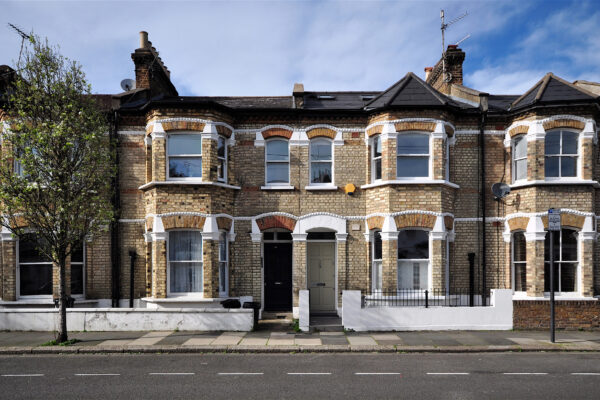Buy tickets now
Triplark Limited v Whale and others [2024] EWHC 1440 (Ch)
![Triplark Limited v Whale and others [2024] EWHC 1440 (Ch)](https://tanfieldchambers.co.uk/wp-content/uploads/2024/09/shutterstock_2056279904-jpg.webp)
Triplark Limited v Whale and others [2024] EWHC 1440 (Ch): a landlord’s works are not within the terms of its repairing covenant where they increase the maintenance burden on the tenant.
The High Court has determined that where a landlord’s proposed replacement of a communal heating and hot water system to comply with its repairing obligations would lead to an increased burden on the tenant by virtue of some of the new equipment falling within the tenant’s own covenant to repair all central heating apparatus solely applicable to the demised premises, the landlord’s proposed works were not within the contemplation of the parties at the time of entry into the lease, and the landlord’s claim for declarations was dismissed.
This is the latest instalment in the long-running litigation involving Northwood Hall in Highgate, North London. At a previous trial in 2019, proceedings between a manager who had been appointed by the FTT and various lessees determined that service charges relating to the costs of a partially-installed replacement heating and hot water system were not payable because the works did not fall within the terms of the flat leases, which the manager was required to comply with by the terms of the FTT’s order which appointed him.
At the end of the manager’s term, management responsibility reverted to Triplark, the landlord. Triplark issued a Part 8 claim in the High Court seeking declarations as to the construction of their obligations under the flat leases in relation to the heating and hot water systems. The declarations it sought were:
- It is entitled to renew, by replacement, the hot water and/or central heating systems in circumstances where the replacement was not identical but provides the service it has covenanted to provide
- It is entitled to disconnect the hot water and/or heating apparatus in any flat from a communal hot water system and/or heating system and reconnect that apparatus to the replacement communal system provided in its absolute discretion that work is necessary or advisable for the proper maintenance safety and administration of the building
- It is not in breach of its obligation to supply hot water and heat if it provides a system capable of providing the required hot water and/or heat up to the exterior of the flat in a manner that the flat owner can connect to it if it wishes and then decommission the existing system.
Each flat lease has a covenant by the tenant to repair the flat including “central heating apparatus … solely applicable to the flat and all fixtures and additions thereto”. There is a covenant by the landlord to “maintain and renew when required the central heating and hot water apparatus and all ancillary equipment thereto other than that contained in the flat”.
The new heating and hot water system which the manager had begun to install and which the landlord wanted to complete operated differently from the old system. Instead of heating water in communal boilers and supplying it to each flat via a network of pipes, the new system would generate heat in the form of hot water heated by communal boilers in a primary circuit to a heat exchanger serving each flat. Heat from that heat exchanger would then heat water within secondary heating and hot water circuits for each flat.
The landlord contended that its obligation to maintain the heating and hot water system enabled it to install the new system, and that the tenants’ covenant to repair would thereafter apply to the new heat exchangers because the tenant’s covenant applied to “all fixtures and additions thereto”. In response, the tenants said that the new system would substantially increase the burden on the lessees by reason of their covenant to repair all apparatus which was “solely applicable to the flat”, which increase was beyond the scope of the bargain struck by the lease.
The judge rejected the landlord’s argument that the parties had expressly provided for the tenant to repair all fixtures and additions, so the proposed changes were expressly covered by the lease and the tenants could not complain that they would become responsible for the repair of the heat exchangers. He construed “fixtures and additions” as applying only to things added by the lessee, and not to things added to the heating system by the landlord.
Further, the new system would entail two heating devices whereas when the lease was granted there was only one, which the landlord had covenanted to repair. Under the old system the hot water heated by the communal boilers arrived at the taps and radiators in the flats. Under the new system a heat exchanger is required to pass heat from the communal system to each secondary flat system, and each tenant would be responsible for repairing it. That would be an additional burden which was not contemplated by the parties on entering into the lease.
The judge therefore declined to make any of the declarations and dismissed the claim.
A link to the judgment can he found here.
Christopher Heather KC acted for the successful tenants, instructed by Matthew Spring at Payne Hicks Beach.
This content is provided free of charge for information purposes only. It does not constitute legal advice and should not be relied on as such. No responsibility for the accuracy and/or correctness of the information and commentary set out in the article, or for any consequences of relying on it, is assumed or accepted by any member of Tanfield or by Tanfield as a whole.







